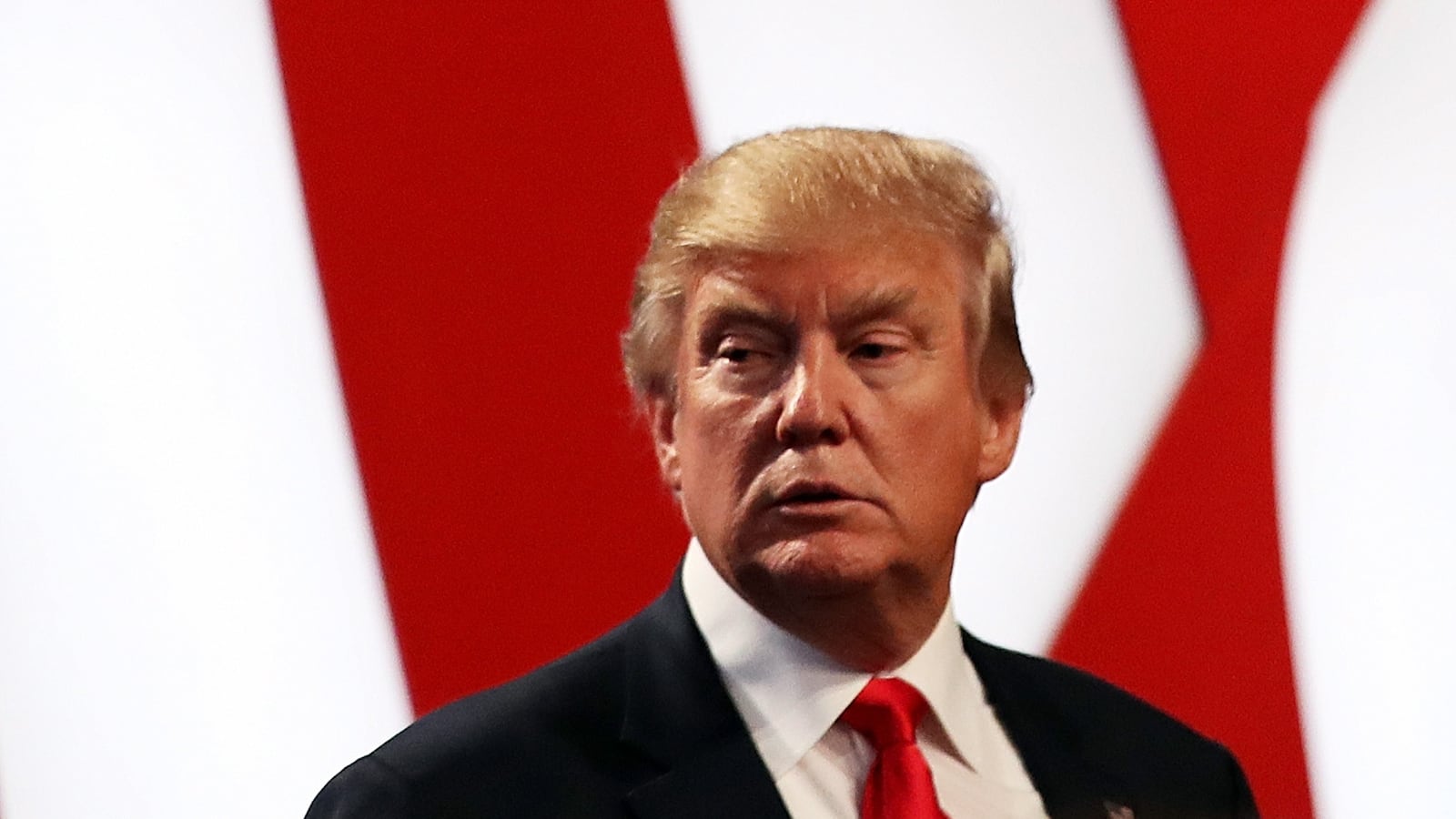On Tuesday, Donald Trump’s longtime lawyer Michael Cohen pleaded guilty to having violated two federal election laws “for the principal purpose of influencing the election” in 2016. And while under oath in a federal courtroom, Cohen made it clear that he did this “in coordination with and at the direction of a candidate for federal office,” that person being Trump.
Cohen has given us all the elements for Trump to be charged with at least the crime of conspiracy to violate two federal election statutes. And if Trump were any other person—a governor, a senator, a private citizen—he would in all likelihood be charged with those crimes. The only question is as president, can Trump be charged now, or would this have to wait until he’s out of office, be it via impeachment, resignation, or his term ending?
Well, Trump’s lawyer Rudy Giuliani, before telling us that “the truth isn’t the truth,” told us about Mueller’s team: “They can’t indict.” Rather, in Rudy’s view, “All they get to do is write a report.”
From there, Trump and Giuliani are counting on the GOP-controlled Congress to do nothing. The GOP’s collective silence over Cohen directly implicating Trump is deafening. At best, they might hold a few hearings for show, but we know they won’t impeach Trump, let alone hold a trial in the Senate to remove him.
That means a person who objectively speaking should be indicted for personally ordering election fraud to win the White House will be governing our nation for the next two or even six years. To me—and I’m a lawyer—that’s being above the law. It sends a message that the president, like a king, doesn’t have to answer for their crimes like the rest of us.
Let’s be clear on a couple points that the right tries to obscure. First, the U.S. Constitution does not bar charging a sitting president with a crime. Second, the U.S. Supreme Court has never handed down such a decision. Thus, it’s an open question.
What we do have, though, are two memos drafted by the Department of Justice’s Office of Legal Counsel that opine that a sitting president should not be indicted. The first in 1973 was drafted in connection with Richard Nixon and Watergate. The second was written in 2000 after the Bill Clinton’s impeachment.
Both memos conclude that presidents are not immune from crimes they may commit. The only question is the timing of the legal proceedings that can be brought against them. In the 1973 memo, the DOJ lawyers stated point blank that as “a general proposition, the Constitution does not require that an officer of the United States be impeached before criminal proceedings may be instituted against him.”
They concluded, however, that the president is an exception to this rule and shouldn’t be subject to criminal proceedings while in office. Their rationale was that if a president is focused on fighting criminal charges, it will “hamstring the operation of the whole governmental apparatus, both in foreign and domestic affairs,” adding, “The spectacle of an indicted president still trying to serve as chief executive boggles the imagination.”
The 2000 DOJ memo essentially reached the same conclusion. But its concerns, while valid, are outweighed by what we have before us, namely a sitting president implicated in crimes that concern how he may have illegally won the election. (And who knows what other crimes Mueller will uncover.)
The DOJ lawyers’ view that impeachment of a president is OK but defending against criminal charges is too much of a burden is simply not grounded in reality. Just look at Bill Clinton’s impeachment and trial, which grabbed headlines for most of 1998 and into 1999. The Senate trial alone took five weeks from Jan. 7, 1999, until Feb. 12, 1999, when Clinton was acquitted. That was longer than Paul Manafort’s trial, which just concluded in three weeks. So the wheels of criminal justice can turn faster than the wheels in Congress.
Second, the government functioned while Clinton was fighting impeachment. And third, I can’t think of a bigger “spectacle” than that impeachment hearing. It was the talk of the nation for not just the five weeks it was conducted, but for the entire year of the Monica Lewinsky-Clinton scandal.
What is a bigger “spectacle”: a trial of a president, or a president in the White House who should be facing criminal charges but is eluding justice by way of a technicality?! How effective can that president be with that cloud of criminality hanging over him?
Now if the obligations of mounting a legal defense truly became too time-consuming for Trump, there’s an easy remedy: the 25th Amendment. That allows the president to voluntarily empower the vice president to act as president for a designated period of time, just like past presidents have temporarily transferred their powers to the vice president when undergoing anesthesia for medical procedures.
These memos, however, potentially pose one very real problem for Mueller to indict Trump without first pursuing impeachment because they appear to be viewed as DOJ policy. A special counsel is required per federal regulations to “comply with the rules, regulations, procedures, practices, and policies of the Department of Justice.”
But—and there’s always a but in government documents, and this is a big one—this regulation also allows for exceptions. Mueller can seek an exception to this DOJ policy from the attorney general if “extraordinary circumstances” are present. Since Jeff Sessions has recused himself, that presumably means Mueller could make the case to Deputy Attorney General Rod Rosenstein that indictment is the only way to go to ensure justice.
The DOJ’s mission as articulated on its website is “to seek just punishment for those guilty of unlawful behavior; and to ensure fair and impartial administration of justice for all Americans.” There’s only one way to do that given where we are politically today and that is by taking this matter away from politicians and allow the independent judiciary to handle it. Anything less would be saying Trump, for all practical purposes, is above the law.






